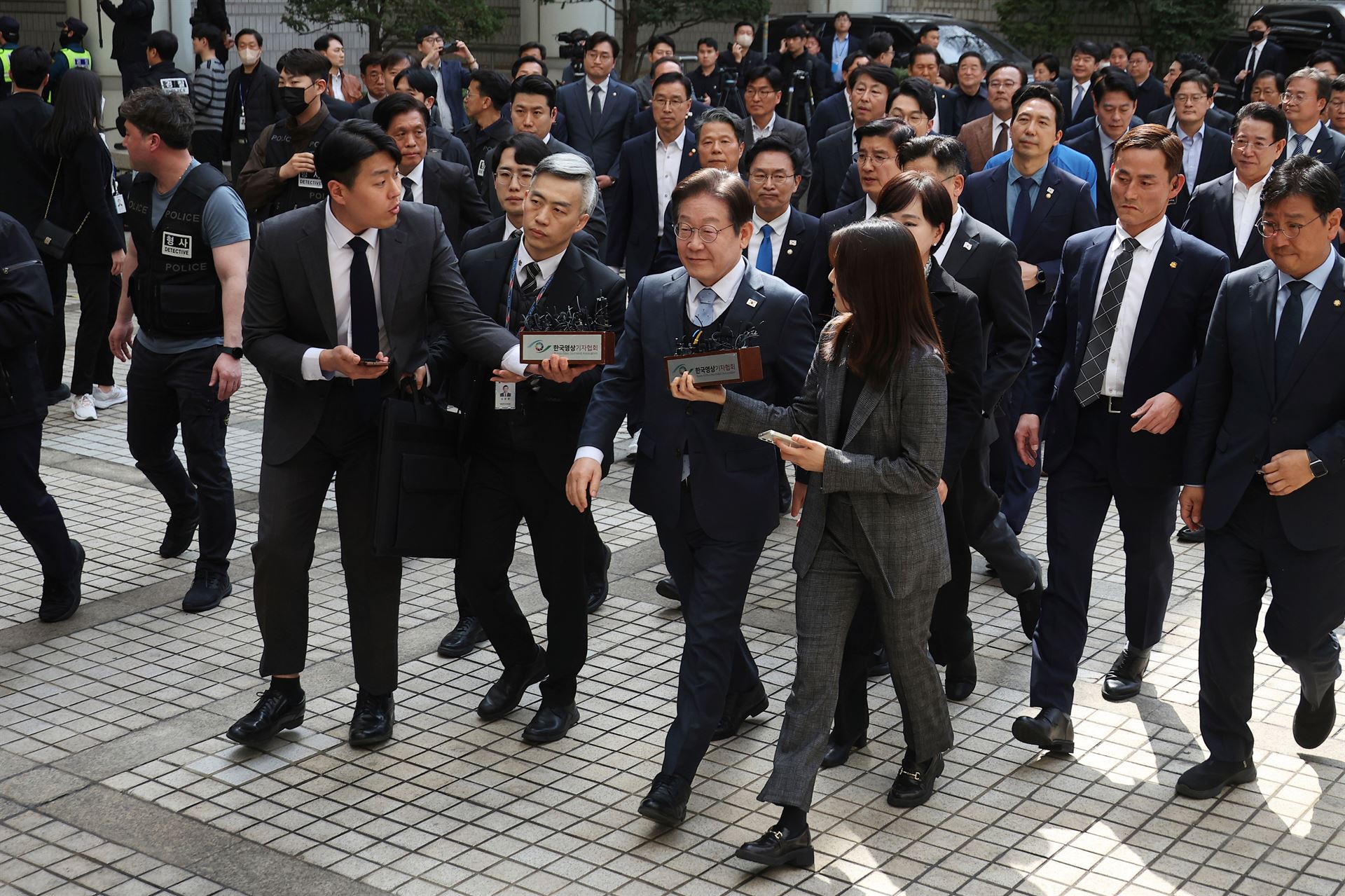
SEOUL - Lee Jae-myung, chief of South Korea's main liberal opposition Democratic Party, resigned as party leader on Wednesday amid wide expectations for his presidential run.
Lee said at the party's supreme council meeting that he was grateful to party members, officials and lawmakers for achievements during his three-year party chairmanship.
The most-favored presidential hopeful noted that he would start something new soon, indicating his declaration to run for president in the near future.
ALSO READ: South Korea to hold snap presidential election on June 3
He stressed that the difficulties people were currently experiencing would be overcome quickly by the help of "great DNA", with which people overcame the past hardships, pledging that he would be with people in the process.
READ MORE: South Korea cabinet to decide on June 3 presidential election date, Yonhap says
A snap presidential election was set for June 3 following the constitutional court's removal of former President Yoon Suk-yeol from office on April 4 over his short-lived martial law imposition last December.
Lee, who lost the 2022 presidential election to Yoon by the narrowest margin, had been broadly viewed as the most powerful contender for the snap election.
READ MORE: S. Korea assembly speaker proposes revising constitution to curb presidency
According to a survey by local pollster Flower, 49.6 percent said they will vote for the Democratic Party's candidate in the next presidential election, while 29.5 percent were in favor of the ruling People Power Party's candidate.
Lee was the most favored as the Democratic Party's presidential candidate with a support rate of 85.5 percent.
The result was based on a poll of 3,004 voters conducted from March 17 to 20. It had plus and minus 1.8 percentage points in margin of error with a 95-percent confidence level.


